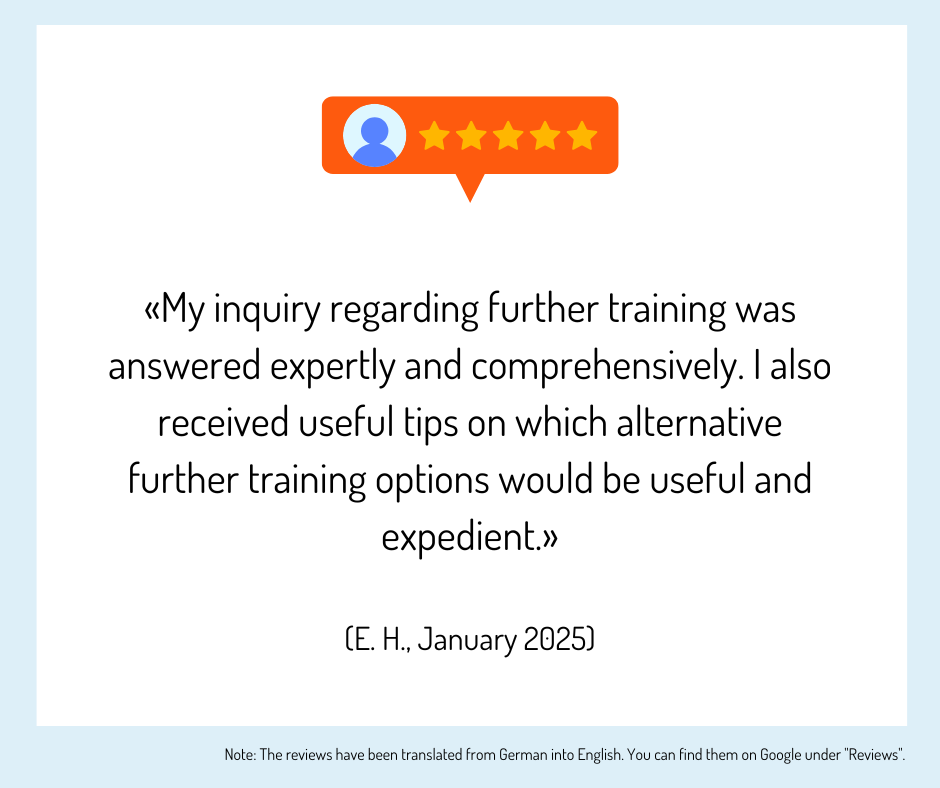Hypnotherapist: Training, offers and provider overview
Tipps und Entscheidungshilfen für die Ausbildungswahl
Questions and answers
How long does training to become a hypnotherapist take?
Training to become a hypnotherapist takes between 5 and 14 full training days, depending on the school. Please check the duration of the individual courses. The longer a course lasts, the more content can usually be covered.
What problems and issues can a hypnotherapist help with?
The possible applications of hypnotherapy are as varied as the life stories of the clients themselves. Combating addiction is a common topic that is addressed by a hypnotherapist, such as becoming smoke-free, anorexia, binge eating, bulimia or alcohol addiction. But fears and phobias are also frequently worked on. These can be fear of flying or claustrophobia, agoraphobia, dentophobia (the fear of the dentist) or even the fear of clowns - there are virtually no limits to anxiety disorders, phobias and compulsions. But even these can sometimes be resolved by an experienced hypnotherapist. Often it is also a matter of coming to terms with the past that leads people to be hypnotized or the search for the causes of behaviour and attitudes. Unprocessed grief, lack of drive, shame, low self-esteem and loneliness, exam anxiety and sleep disorders, stress and mood swings can also be issues that can be treated with the help of hypnotherapy.
Is it possible to become a self-employed hypnotherapist after completing a course?
After completing training in hypnotherapy, it is quite possible to become self-employed as a hypnotherapist in your own hypnosis practice or as an independent therapist in group practices, health centers, counseling facilities, addiction facilities, coaching institutes and the like.
Are there certain admission restrictions for participation in training to become a hypnotherapist?
As a rule, there are no special admission restrictions for training as a hypnotherapist. However, as soon as it comes to postgraduate courses and continuing education, further training, basic knowledge or special training is usually already required. This is the case, for example, with offers for which a completed training as a Cert. Integral Coach or a comparable qualification is expected. Ask the individual schools about the admission requirements.
What qualification do trained hypnotherapists obtain?
Each school or training institute awards different qualifications, so you should definitely contact the relevant training provider (e.g. via our contact form). Possible qualifications are, for example, "certified hypnotherapist" or "certified hypnotherapist".
Erfahrungen, Bewertungen und Meinungen zur Ausbildung / Weiterbildung
Haven't found the right training or further education yet? Benefit from educational advice now!
Further training is not only important in order to maintain or increase professional attractiveness, investing in training or further training is still the most efficient way to increase the chances of a pay rise.
The Swiss education system offers a wide range of individual training and further education opportunities - depending on your personal level of education, professional experience and educational goals.
Choosing the right educational offer is not easy for many prospective students.
Which training and further education is the right one for my path?
Our education advisory team will guide you through the "education jungle", providing specific input and relevant background information to help you choose the right offer.
Your advantages:
You will receive
- Suggestions for suitable courses, seminars or training programs based on the information you provide in the questionnaire
- An overview of the different levels and types of education
- Information about the Swiss education system
We offer our educational counseling in the following languages on request: French, Italian, English
Register now and concretize your training plans.











